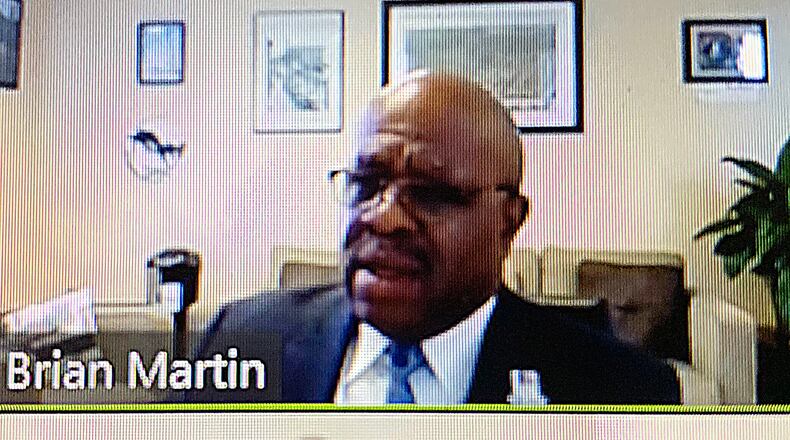“I think the more you talk about something, the smarter you get about it,” said Koogler, who in August asked for the first measure to be tabled 60 days.
Speaking then on behalf of a coalition of Greene County communities, Koogler called the first resolution “an unnecessary and polarizing act rather than a unifying call for change.”
Brian Martin, executive director of MVRPC, said Thursday that since the board’s August meeting he had more than 30 discussions with delegates, including Koogler, “just to make sure we get this edition of the resolution right.”
Martin on Thursday reiterated the original resolution may have caused confusion, but didn’t mandate that local jurisdictions adopt their own racism as health emergency statement.
“It does apply to staff, our hiring, our purchasing and board of directors actions. It does not require any one jurisdiction to pass a similar resolution,” he said. “Obviously, we’re going to encourage everyone to do that.”
Koogler also commended Martin for “stepping out and really taking the time to communicate and listen to what is going on within those other communities and to help the other elected officials understand some of the things that maybe were confusing.”
MVRPC is a regional planning commission that makes transportation planning, funding and policy decisions for Greene, Miami and Montgomery counties and four jurisdictions in northern Warren County. The commission also offers regional and environmental support for additional area counties.
The August resolution was modeled after ones adopted by others in the region that declared racism a public health crisis that negatively affects well-being and leads to disparate outcomes in many areas of life. The city of Dayton, Montgomery County, Piqua, Trotwood, Yellow Springs and other institutions like Sinclair College, the University of Dayton and the Dayton Area Chamber of Commerce have approved such measures.
Ohio Gov. Mike DeWine’s task force examining the impact of coronavirus on minority communities released an Aug. 19 report listing as its first recommendation that state and local governments “acknowledge racism as a public health crisis and commit to swift action to dismantle racism.”
Dayton City Commissioner Matt Joseph, who supported language in the original resolution, said MVRPC representatives had “a lot of tough conversations” over the past two months getting to a final version.
“I’m confident that adding our MVRPC voices and efforts towards solving this problem will help push toward healthier and more fair outcomes for all of our residents,” he said.
Chris Kershner, Dayton Area Chamber of Commerce president and CEO, said MVRPC board members are community leaders who “have the responsibility to pave the way for others.”
Kershner said 87 member companies signed onto a chamber statement committing to end racism and declaring racism as a public health crisis.
While the new MVRPC resolution doesn’t name racism a health emergency, Kershner called the board’s vote Thursday “one more voice in helping to solve this problem.”
One concern voiced by some MVRPC delegates was the original resolution strayed beyond the bounds of the organization’s regional planning and transportation mission.
Martin at Thursday’s board meeting maintained the organization has wide reach.
“If you look at our bylaws and our strategic plan, any matter or issue that binds us all together — all of our natural resources, our buried valley aquifer, which is our drinking supply, our trails network funding, representation — MVRPC has definitely taken a position on those matters over the years,” he said. “We’re far broader than transportation.”
About the Author

